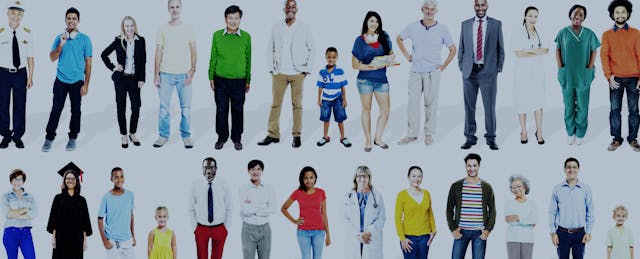Today, job seekers rely on outdated methods to communicate their abilities and work experiences. The status quo fails to capture the full spectrum of an individual’s range of skills and creates a bias favoring credentialed learning, which hurts the nearly 70 percent of Americans who don’t have a college degree. There is also a growing skills mismatch between employers and employees, which a Deloitte study estimates will cost our economy $2.5 trillion.
Meanwhile, higher education in America has been clinging to a traditional approach that is yielding widespread skepticism, historic levels of student debt and declining undergraduate enrollment. COVID-19 put a giant exclamation point on these colliding trends as American employers continue to struggle to find skilled talent and face a pressing moral imperative to move the needle on diversity, equity and inclusion.
We are at a critical juncture in America, and action is required to close the skills gap and solve for our country’s current labor shortage.
The Open Skills Network, convening its first-ever virtual Skills Summit this week, offers a pathway out of these challenges and shines a promising light on how educators, employers and economic development professionals can collaborate to equip and empower a stronger workforce. The summit, “Opening Up the Learning-Earning Ecosystem,” kicks off July 28 with a keynote address by U.S. Secretary of Commerce Gina Raimondo. Her talk will underscore the need to build a business infrastructure that can solve America’s talent pipeline crisis.
Fortunately, the Open Skills Network is already working on solutions, with heavyweights including leading-edge corporations Walmart and LinkedIn and institutions such as the U.S. Chamber of Commerce Foundation. In less than 12 months, the network has built an impressive coalition of 530 employers, educational institutions and technology providers all focused on ensuring that American workers have the skills and talent to thrive within a labor market aligned on common standards and language. Our goal is to empower employees to own their careers as never before and to help employers easily identify the skills-based talent they need to succeed.
Up until recently, skills-based data has been siloed. With the help of many technology partners, the Open Skills Network aims to create a decentralized network of open, accessible and machine-readable skills to propel the American workforce forward. Workers will have the ability to capitalize on the skills they have already developed, no matter where that skill acquisition took place. They will also be able to more easily identify learning opportunities that will help them achieve their career goals. At the same time, employers will be able to focus on a candidate’s verified skills rather than other subjective criteria. Skills-based hiring can help employers access talented people generally overlooked by traditional hiring methods, such as people of color, women, people who have disabilities, people who have criminal records, people who have paused their careers to care for family members, and people who lack a four-year degree. For education institutions, a common skills language will bring greater consistency and interoperability to course descriptions and outcomes, credentials, and academic records.
When fully realized, the vision of the Open Skills Network—a world in which all individuals have the skills necessary to thrive, the tools to signal their talent easily to the labor market and economic mobility regardless of whether their learning was academic or work-based—will bring revolutionary democracy to the workplace.
Young workers—many of them employed full-time while pursuing degrees—will benefit. Mid-career workers, some of whom did not complete their college careers, will too. As will Baby Boomers—some who have gained significant on-the-job skills and others who plan to re-skill to remain in the workforce longer. The truth is, everyone—no matter how they look, where they live or what their life experience may be—stands to prosper from a unified skills-based training and hiring approach.
We can make this commonsense theory common practice with your help. It’s not too late to join the free summit this week, and session recordings will be made available after the event. We believe now is the time for educators, employers and the government to unite and resolve to move America forward with the strong, diverse and nimble workforce we need to stay competitive. Creating a universal skills language will not only create a more equitable economy and environment; it will also reshape the future of the workplace.


